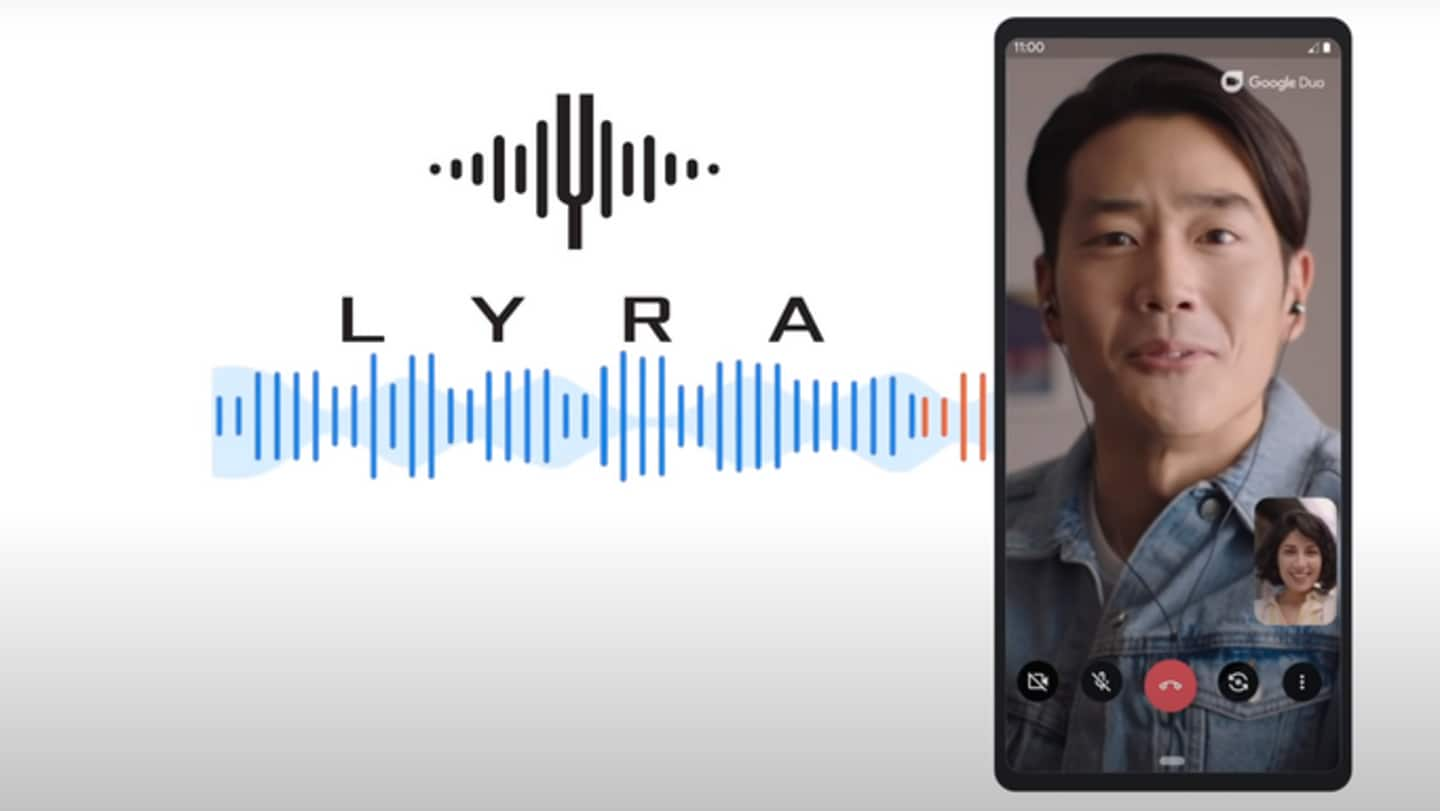
Google makes its Lyra audio codec open source
What's the story
Google has announced that the Lyra audio codec which was released for Duo in February 2021 is now open source.
It has posted the code for the latest beta build of Lyra on GitHub. The release provides developers with the tools needed to implement the audio codec in their applications.
Google expects that developers will come up with new ways to use the codec.
Solving problems
Lyra can offer clear audio calls on slow internet connections
Lyra aims at providing high-quality audio even on slow internet connections.
For example, when you make an audio call using a slow connection through applications like WhatsApp, you might face call disconnection or audio break-up issues.
However, if you make a call using applications that use Lyra, you might not face any connection drops, as the audio codec uses fairly less data.
ML-powered
How does the Lyra audio codec work?
The Lyra audio codec has two parts: an encoder and a decoder.
When someone speaks, the encoder captures distinctive attributes and features from the speech in chunks of 40 milliseconds.
Once the data reaches the other device, the decoder converts those attributes into an audio waveform via a generative model (basically machine learning).
According to Google, Lyra compresses raw audio to just 3kbps.
Need of the hour
Audio and video calls have become important during COVID-19
Tellingly, working and studying from home during COVID-19 has made audio and video calls extremely important for most of us.
While the internet speed has increased drastically all across the globe, there are still many regions (in India and Brazil, says Google), where the internet connection is slow.
Lyra will come in handy in such regions to provide users with seamless audio calls.
Endless possibilities
Lyra can be used in a wide range of applications
Lyra is written in C++, which, according to Google, offers speed, efficiency, and interoperability.
Although Lyra is expected to be used mainly in communication apps, it can be implemented in a wide range of applications.
For example, Spotify can use Lyra to provide uninterrupted online audio streaming in regions with slow internet speeds.